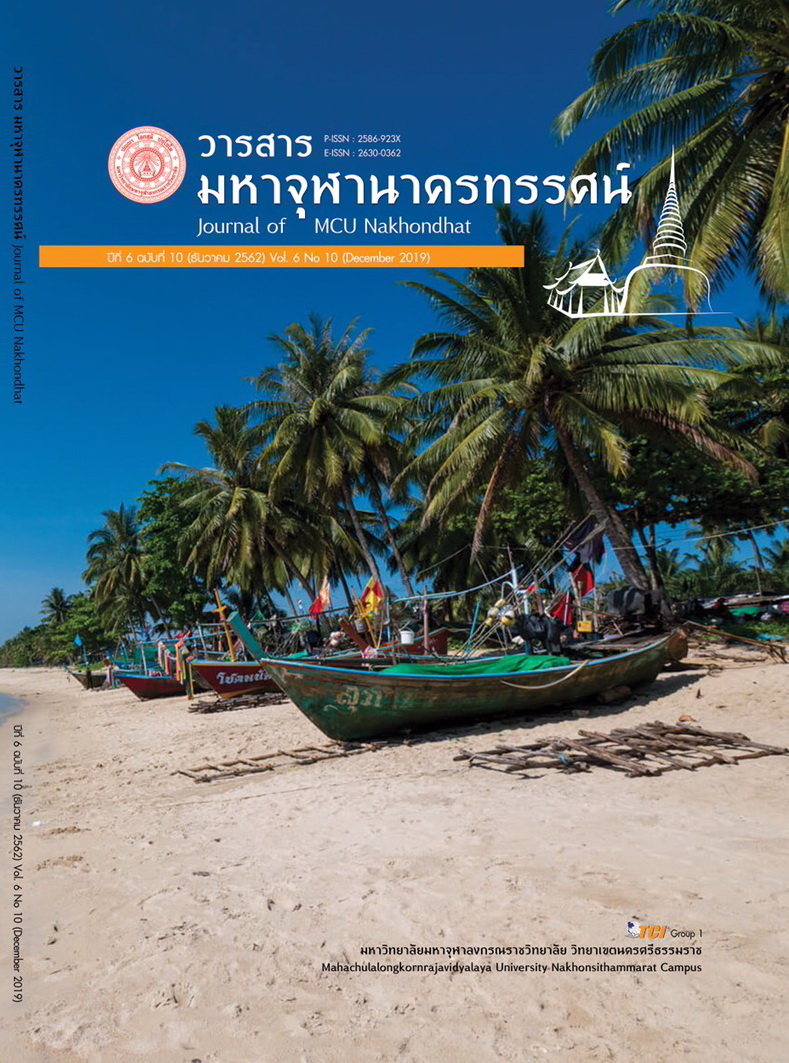THE ROLE OF MONKS AND THE PUBLIC WELFARE WORK
Main Article Content
Abstract
The public welfare works of Phrakru Suwimonbhavanakun, the provost of Wat Khao Ta-ngoh Udomsomporn, Banhuanong, Nongbuarawe District, Chaiyaphum Province It is regarded as a crucial perspective in helping Buddhists to have a secure vocation and gain income for livelihood including other welfare activities. Another important role of Phrakru Suwimonbhavanakun was to build a large dam for preventing floods in rainy season and solving problems of water shortage in dry season. This has ultimately benefited the villagers. Other than building the dam, the venerable also had 4 missions for public welfare including: mission on children was to promote them to have good education and become a power of the nation; mission on teachers was to promote teachers’ quality of life following Buddha Dhamma principles and to enhance English technical potentials among teachers to be good examples of their students; mission on temples was to promote education in both worldly and Dhamma aspects including enhancing Dhamma practice of monks and novices; and the last one, mission on the people was to inculcate villagers to have a right view and protect themselves from self-indulgence starting from observing the Five Precepts to be out of allurement that leads to ruin but to realize and understand the truth according to the natural law and to promote villagers to be economical in all festivals for the best benefit of villagers. Minimizing and abolishing the allurement that leads to ruin, thus, helps villagers be out of debt caused by festivals. The public welfare works of Phrakru Suwimonbhavanakun, the provost of Wat Khao Ta-ngoh Udomsomporn, Banhuanong, Nongbuarawe District, Chaiyaphum Province, therefore, includes physical social welfare and emotional, social, health, intellectual and life skills. This results the benefits and happiness among children, students, teachers, monks, novices and all villagers.
Article Details
References
พระธรรมปิฎก (ป.อ. ปยุตโต). (2543). การศึกษาเครื่องมือพัฒนาที่ยังต้องพัฒนา. กรุงเทพมหานคร: สหธรรมิก.
มหาจุฬาลงกรณราชวิทยาลัย. (2539). พระไตรปิฎกภาษาไทย ฉบับมหาจุฬาลงกรณราชวิทยาลัย. กรุงเทพมหานคร: โรงพิมพ์มหาจุฬาลงกรณราชวิทยาลัย.
Charles S, Prebish and Damien Keown. (2006). Introducing Buddhism. London and New York: Rutledge Curzon.
Kenneth Kraft. (1992). Prospects of a Socially Engaged Buddhism. New York: University of New York Press.

